Lynsey Holzer on why trust CEOs need more accountability, how she brought business leadership to the MAT boardroom and why she tells her staff she loves them …
“More accountability” was not the answer I was expecting from a question to a trust CEO about the sector’s biggest issue.
“I would find it really hard to lose my job – that’s not right, is it?”, says Lynsey Holzer, who leads the Active Learning Trust with 19 schools across the East of England.
“You should know your schools inside out, and if they fail, you fail. I’ve always said to my trustees, ‘if these schools fail – you sack me’. But that’s not a popular opinion.”
Her solution is equally as blunt: “Put all schools in a MAT – we’re halfway there anyway – and then inspect the MATs [instead of the schools].
“By the time a school fails, there’s a lot of kids that have lost out. But regional directors have no power to intervene – they can only take a school away [after it’s failed]. If a MAT has failed a school, they are probably failing others.
“So proper accountability would be good… or schools will continue to fail under bad MATs, and there’s lots of those about.”
‘Rock bottom’
When Holzer took over at Active Learning in January 2023, it was under government scrutiny over standards failures. Former CEO Stephen Chamberlain had resigned in May of the previous year.
On being offered the job, Holzer was told the government was “about to take two schools away. The trust was near to being broken up”.
“It was one of the first ever trusts but it just lost its way,” she says.
One silver lining was that Active had £12 million in the bank. Holzer attributes this to a lack of oversight on central funds.
One of her first jobs was to appoint a central team (it didn’t have one).
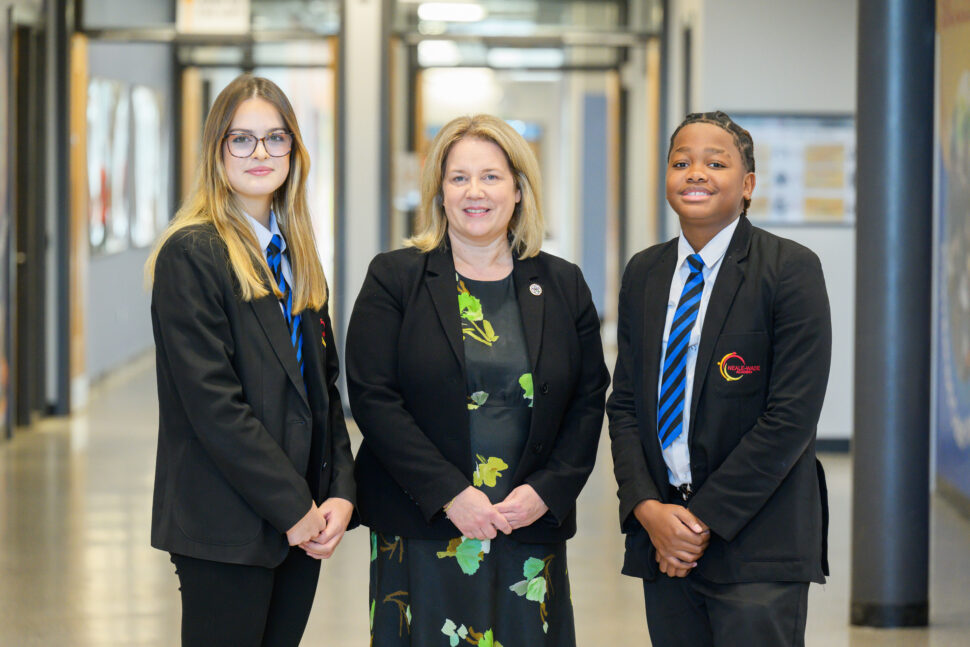
“It’s really easy to persuade people to join a kind of crusade, to fix the lame animal,” she adds. “I wanted people with MBAs and who had done it before, because I didn’t have time to mess around. It was like Avengers Assemble.”
There was huge upheaval. Several heads ended up leaving. Some trustees resigned.
“The trust was rock bottom – but there were some really good schools and really good people.
“It took a little while to build trust, because they’d had quite a lot of poor treatment in the past. But I was really open with everyone [about what I wanted to do] and finally the good people said ‘OK, we get it now’.”
‘Suddenly, nobody had any money’
Luckily, Holzer isn’t easily fazed. Growing up on the outskirts of Manchester, her family had three businesses – but they all folded when the miners’ strike hit in the mid-1980s.
“Suddenly, nobody had any money. We ran a shop and a bakery, and I remember my mum just giving away food to everybody who came in.”
Soon after, the family “packed up all we could in the car, stuck a pin in a map and drove to Norfolk. I remember it so well, but it wasn’t a big problem, we just got on with it.”
Holzer was nine at the time. She moved from an urban school with high standards to a 70-place rural primary school where pupils “wore slippers and wellies”.
“I was so far ahead – the standards were awful. I remember the teacher used to ask me to teach others how to do joined-up handwriting.”
But she had “always wanted to be a teacher… they were probably the only professional role model I saw”.
She did OK at a local comprehensive, but “aced” her A-levels at City College, in Norwich, and bagged a place at Cambridge University – the first in her family to attend university.
“I only went there because it was the closest one. I loved the education stuff, but hated everything else.
“It was so alien and posh, I was surrounded by a lot of people I couldn’t understand.” (She’s told her children, Poppy and Jacob, they are not allowed to go there.)
But Holzer stuck it out, and completed her teacher training at the university too.
‘On crest of IT wave’
Her first job was at Woodlands School (now Woodlands Primary Academy), in Great Yarmouth, just before the millennium.
Holzer taught science, but was asked if she wanted to also lead DT or IT. “I said I’ll do IT, because I can’t handle a saw.”
She recalls “the internet was just coming into schools”, meaning she was sent across the country to do training.
“I was on the crest of a wave, and leadership happened fast because of that,” she adds.
She then moved to Rowan Hill Middle School as assistant head. “I’d never seen anything like it. It was proper disadvantage. The school was on its knees.”
The then-head Paul Herod told her “‘you can do what you like if you’re going to help the kids’. Nothing was off limits.”
They took all the pupils to London to see the Lion King theatre show. One year, they turned the school’s hardcourt into an ice rink and invited the whole community in.
Within a few years, the school got ‘good’ with ‘outstanding’ in areas.
First headship before 30
Holzer took up her first headship at Poplars primary school in 2010, just before she was 30.
The school, which was ‘outstanding’ at the time, was going through a major expansion into an all-through primary.
Holzer recalls trying to modernise the school, introducing things like appraisals which did not go down well with the school’s long-serving teachers (despite being head, she says she was one of the youngest staff).
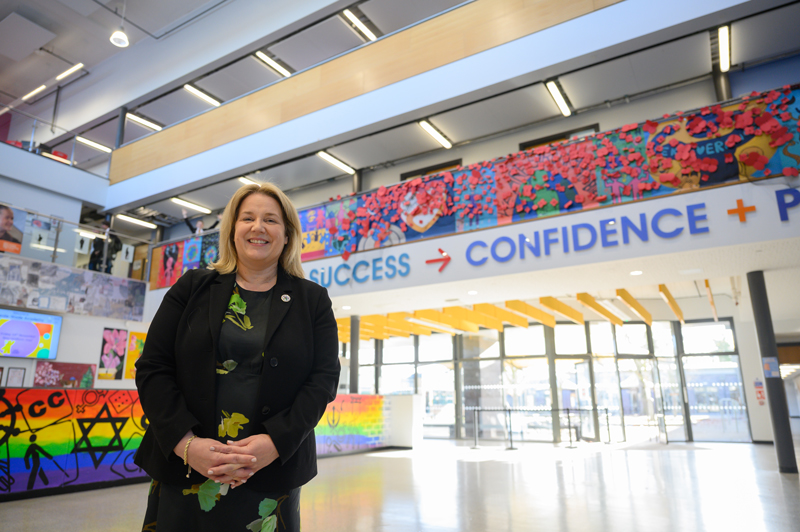
“I remember phoning up the LA and saying ‘I can’t do this – it’s too hard’. It had been ‘outstanding’, but it wasn’t.”
The school was downgraded to ‘requires improvement’, but later rated ‘good’.
“It was hard. I very nearly left, but two terms in, I had a good deputy walk through the door. You just need one ally sometimes, and I bring that [mantra] to work now.”
‘It’s about inspiring them’
In 2018, Holzer was appointed executive principal for the Evolution Academy Trust – which had 12 primaries across Norfolk and Suffolk – and became its CEO a year later.
She recalls her chair of governors sending her back to Cambridge, but this time to its esteemed business school for a Master of Business Administration (MBA) alongside CEOs from multinational companies.
“I was the only one from the public sector, but the training was a level above which really leads me now.”
At Active, all her executive team have MBAs. The trust has also developed its own leadership development programme, which is on its third cohort.
She describes it as “anti-NPQH [the teacher development qualification for headteachers] – it’s about inspiring them”.
Other schools are sending their staff, too, helping the trust to “grow leaders for the whole area”.
One of Active’s strategic aims is to be ‘professionally generous and affect the sector’. Holzer adds: “It’s really important to us, so we do it a bit differently.”
‘We’re not shy of emotion’
Active is big on values. But Holzer quickly adds they “aren’t knobby words like ‘integrity’ – nobody really knows what that means”.
Instead, the values include ‘humour, humility and humanity’, ‘family, not a house share’ and ‘curious, creative and bold’.
The most used is ‘comfortable being candid’.
“I get emails with it in the subject line and I say ‘here we go’. But it’s like a call to arms: we’ve all agreed that not only will you say it, you will also receive it well.”
She waxes lyrical about her central team, who she “loves”.
“We’re not afraid of saying that word. I say it all the time. ‘I’m literally in love with this trust. I love it. I care about you all [her staff]’.”
Love is also built into the trust’s policies. She highlights Active’s behaviour principles: “High expectations, a clear system consistently used, and with love.
“We could see in our successful schools, where behaviour was working, it was that bit of magic. These adults were going to the ends of the earth for these kids. They were properly loving them.”
Behaviour is one of the areas the trust has a centralised model, and is now working to draw up principles for “how we teach”.
“If a school’s in trouble, then they need to do it our way, just for a bit, until they’re confident,” Holzer says. But schools performing well, or with an experienced head, can “teach whichever way they need to, because it has to be contextual, as long as they stick with our principles”.
Holzer, who also serves as an Ofsted inspector, rails against the practice of teachers being “given scripts” for lessons.
“My test is: would good teachers want to work in that system? Often, it’s ‘no’.”
MFL? Duolingo can do it
She laments “we’re not a very innovative sector” and says of the AI rise: “We’re not going to cope with the next 10 years unless we get a little bit more open and braver.”
One idea she half-jokes about is getting rid of MFL.
“Duolingo does this well and kids respond to that. Make it competitive, gamify it – and crack on.”
But what next for Holzer?
“I think this is the first time in my career I properly love my job. I feel completely confident, comfortable and at ease.”
The trust has improved attendance and key stage 2 outcomes, with a few schools on the cusp of ‘outstanding’ (before the inspection framework changed).
More work to do
But there is more work to do in two schools which remain ‘requires improvement’, although they have improved across the sub-categories.
Holzer is now also looking at how the trust can help solve wider issues.
Active has established nine working groups to “carve a path through” some of the special needs system’s failures.
That includes exploring making the SENCo role more sustainable, introducing a minimum training guarantee for heads, having only specialist teaching assistants and running their own alternative provision.
She fears SEND reforms will just “tinker. Councils are so desperate – we’ve got a real chance to do something a bit differently. I believe it can be solved in trusts, but we’ll need cooperation from others.”
Her priority would be to rebuild wider support services around schools, such as health, social care and community centres.
“Schools just end up filling the gap but we’re not the experts.”
Clarification: A quote about Duolingo was amended in our edition and has been updated online


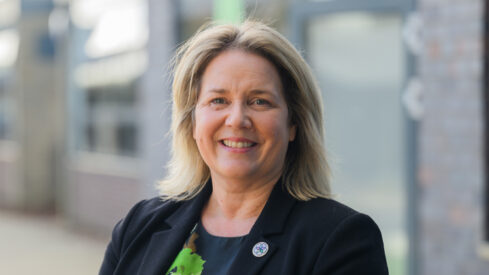



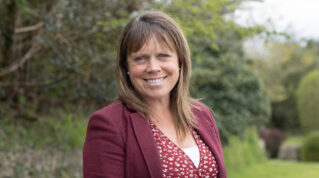
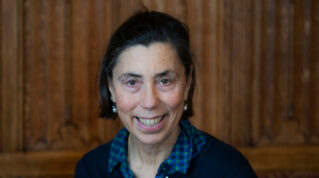
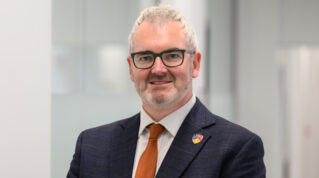




Your thoughts